|
In my Bible study, we are reading through the Second Letter to the Corinthians from St. Paul. The last session covered Chapter Five. It deals with the current and future destiny of our bodies. For we know that if our earthly dwelling, a tent, should be destroyed, we have a building from God, a dwelling not made with hands, eternal in heaven. In verse one, Paul says our earthly dwelling is a tent. What is the tent? Even in his day, most people didn't live in tents. They had stone or wood houses. Clearly that can't be what Paul meant. In fact, he is referring to the earthly body as a tent, and the heavenly body as a building. In the Old Testament, the Israelites traveled with the Holy of Holies, the place where the Presence of God was pleased to dwell in a special and unique way, in the form of a tent structure. It's portable, appropriate for a sojourning people. When they finally reached the Promised Land, King Solomon built the Temple out of stone and precious metals. It was a structure of permanence and stability; it declared this is where God is and He isn't moving. A tent is a much flimsier home than a stone building. Yes, they are both dwelling places, but stone is harder to destroy than cloth, and more secure. There is, to borrow a phrase from Alice in Wonderland, a muchness to stone, a weight and solidity that tents don't have. In the Transfiguration scene in Luke 9: 28-36, Jesus' face and clothing are changed. Scholars take this to mean that we will have our same bodies, the one the soul is united with right now as you read these words, for all eternity. For better or worse. In Heaven, the body shall be glorified and refined, receiving a muchness that we don't have now. In Hell, the body shall be as damned as the soul, in anguish just as fitting. In the ancient world, this concept of retaining your physical body after death would have been flabbergasting. Most philosophical traditions saw the body as something other than the true self. It was something to be punished, or used for mere pleasure, but importantly gotten rid of, so the spirit-self could be free. Christianity says otherwise. We, human beings, are body-soul composites. Matter and spirit united into one creature. And that is good. If we were pure matter, we would be like the inanimate universe, or at best like animals. If we were pure spirit, we would be angels. We are neither. We are a unity of the two most opposite things in the universe, and God looks at us and says we are good. There is a reversion of thought in our modern world that reflects the ancients: either the body doesn't matter at all and I just need to get rid of it because it's not really me, or it's all that matters because there is nothing else to me. It's sneaks into Christian minds as well. Which is devastating, on the psychological and spiritual levels. We should have a sense of home-ness in our bodies. Have you ever met someone who just seemed uncomfortable in their own skin? As if they didn't know what to do with themselves? Have you ever been that person? We're often expected to get our act together. Be confident. Act normal. Own yourself. But you can't own selves, yours or anyone else's. That is a mask. And a mask is not a home. Think now of the people whom you've met who were so solid and real and, in a word, themselves, that you felt comfortable enough to be yourself. Think of the people whose houses you walk into and sigh with peace and the knowledge that you are loved. Think of those whose arms embrace you and tell you it is good to be alive. One of the best ways to love others is to love yourself. Treat yourself with dignity and respect. The Christian is commanded to love as Christ loved, and thus has the duty to be a holistically integrated human being more so than the rest of society. Be at home in your own skin, and allow others to be home in their own existence. We want visitors and guests to feel welcome in our homes, don’t we? Well, they can't unless we do; stability and hospitality begin in the heart. These virtues start to grow when we allow ourselves to become integrated and united, when all of our being is directed and following one Way with all your heart, with all your mind, with all your strength, and with all your soul. **This post was originally published on 7/19/2016**
0 Comments
It might be frightening to look at our culture today. There is the sense that a Catholic worldview is not welcome. Some feel confusion about what it means to be Catholic. A culture of death and darkness seems to oppose God’s love. One wonders how the Holy Spirit will work in the world and through the Church amidst such hostility and division. This is not the first time the Church has encountered such a moment. The 1500s were also a tumultuous era. At the beginning of the century, in, 1517, the Protestant Reformation started. Then the English Reformation of Henry VIII began in 1534. The Church responded with the Counter-Reformation. A new order, the Jesuits, was founded in 1540 and in 1545, the Council of Trent was initiated. By that time, millions of people had left the Catholic Church. It seemed to be a time of waywardness and chaos. How was the Holy Spirit going to work in such a world? Simple: By sending the Mother of God not to the Old World—Europe—but to the New World. Specifically, Mary appeared at the Hill of Tepeyac in 1531 to ask a 57-year-old peasant named Juan Diego to speak to Bishop Zumarraga about building a chapel in her honor there. This is where Our Lady, on December 9th, made her first apparition to her “Juanito” or “dear little Juan.” She told him that she was “the perfect and ever Virgin Holy Mary, Mother of the God of truth through Whom everything lives, the Lord of all things near us, the Lord of heaven and earth.” On her last visit on December 12th, Mary arranged roses in Juan Diego’s tilma and sent him to the bishop to ask him again to build a shrine to her on that spot. When he opened his tilma to show the bishop the roses, it revealed her image, which can still be seen in the Basilica of Our Lady of Guadalupe in Mexico City. Mary appeared on a hill that was already sacred to the ancient peoples of Mexico as a shrine to a mother goddess. She was dressed as an Aztec princess, pregnant with the God who made us. She spoke to a humble native of the land and called him her “youngest and dearest son.” Before her apparition, approximately 200,000 Native Americans had been baptized. Between the time of her visit to Juan Diego and her message to Bishop Zumarraga and their deaths in the spring of 1548, over 9 million ancestral peoples had received the gift of faith and baptism. In a time of great conflict, colonialization, and racial tension, Mary appeared on this continent to tell Juan Diego, “I am truly your merciful Mother, yours and all the people who live united in this land and of all the other people of different ancestries, my lovers, who love me, those who seek me, those who trust in me.” She is the mother of all the peoples in the land, then and now. She reminds us that what truly defines us is not our status or ancestry, but our membership in the Body of Christ. It can be a struggle to know and act like a member of Christ’s Body when there are so many opposing forces. What does it mean to act like a Christian, vote like a Christian, shop like a Christian, or even speak like a Christian? It means that we take our fears, our sorrows, our hopes, our hurts, and our weeping not to a political party or an outlet mall; but to our Mother, who in turn presents them to her Son. Am I not here, I, who am your Mother? Are you not under my shadow and protection? Am I not the source of your joy? Are you not in the hollow of my mantle, in the crossing of my arms? Do you need anything more? -Our Lady to Juan Diego Question for Reflection: In times of distress, do you turn to Our Lady to bring you closer to Christ? In 1745, Fr. Alban Butler produced his collection of the Lives of the Saints. It’s been in circulation ever since, providing the faithful with stories of holy men and women as exemplars to imitate. Oftentimes, the stories in the volumes of the Lives of the Saints do not seem to portray real human beings. The brief passages list only miracles and pious deeds. Sometimes I feel that the examples used could even make the sweet St. Therese, the Little Flower, look positively scandalous in comparison! This is not to say that Fr. Butler’s work is in vain. It is good that these names are recorded for us. As we celebrate All Saints’ Day, we should honor those who came before us and passed down the faith from generation to generation. But this feast day raises the question: what is a saint? The process of canonization tells us that we know when a certain person is surely in Heaven and that their life is worth imitating, but there are more unrecognized saints than those that are recognized. Saints are people who, through the course of their lives, have grown into the image of themselves which God holds in His divine mind. They become who they were created to be in the fullest sense. The marvelous thing about saints is that they were real, gloriously messy, complex human persons. If we believe every human being is an unrepeatable expression of God’s love, then it stands to reason that every saint is an unrepeatable example of what it means to live out of that love. I think too often we get concerned with trying to imitate certain saints, like St. Therese, and forget to discover who we were created to be. You cannot be St. Therese: Part 2, or Bl. Pier Giorgio Frassati 2.0. Those roles have been taken because those two individuals had the humility to see the greatness God was inviting them into. They stepped into the journey of becoming who they were meant to be. Dr. Gianna Molla, known for giving her life to save her infant daughter’s, was not a saint because of that one action. Her life was steeped in holiness. She was a doctor, a mother, a lover of fashion, and apparently a terrible driver. But as much as I want to be her when I grow up, I can’t. I will never be a doctor, for one thing. What I can do is find pieces of my personality in hers, and I can learn from her example of how she lived and how she handled certain situations and use those lessons in my own life—much like getting advice from an older sister. Holy lives are not replicas of each other. You cannot program holiness by inserting a set of statutes, commands, circumstances, or ideals into people. Pope Emeritus Benedict XVI, in his General Audience on April 13, 2011, said “Holiness, the fullness of Christian life, does not consist in carrying out extraordinary enterprises but in being united with Christ, in living his mysteries, in making our own his example, his thoughts, his behavior” (emphasis mine). We are called to live as Christ in a particular manner, in this particular time, with our own particular gifts. I cannot be you and you cannot be me. But I need you to be the person God has called you to be because we are part of the same mystical Body of Christ, alongside the saints. Conversely, I need to become the person God created me to be as well. We will never know all of our spiritual brothers and sisters until we reach Heaven. As members of the Church triumphant, the saints want us united with God even more than we want to be with Him because they love more perfectly than we do. May we imitate their holy example and ask for their guidance in living out of the love of God more and more completely each day. Reflection Questions: Who is your favorite obscure saint? What quality of sanctity do you want to grow in this season? Angels are mysterious beings. Our culture has a lot of misconceptions about angels--what they are, who they are, and what they do. According to the Catechism of the Catholic Church (CCC), an angel is a being of pure spirit; that is “what” they are. St. Augustine tells us that the word “angel” is actually what they do: they are messengers and servants of the Most-High God. There are three archangels named in the Bible: Michael, Raphael, and Gabriel. These messengers served God’s people at different times and had different purposes. They had vastly diverse missions, each corresponding to their very identity and being. Let’s take a look at them now. St. Michael is known as the Prince of the Heavenly Hosts and the defender of God’s people. According to the Catholic Bible Dictionary, Michael means “Who is like God?”. In the Book of Revelation, “Michael and his angels” battle the dragon, an ancient symbol of the devil, and throw him and his followers out of heaven. Christianity honors him as a patron of the nation of Israel, God’s chosen people of the Old Testament. Today, Michael is still thought of as a guardian of the Church, God’s people of the New Testament. St. Raphael is mentioned in one book of the Bible—the Book of Tobit. His name can be translated as “God will Heal.” In the Book of Tobit, God sends Raphael to answer the prayers of two people: Tobit, who was blinded by bird droppings, and Sarah, who was harassed by a demon who killed any man she married. These two, on the same day, prayed to God for death. God answered their prayers by sending Raphael, who brought together Tobias, Tobit’s son, and Sarah. He also banished the demon that stalked Sarah and healed Tobit’s blindness in the same journey. St. Gabriel appears once in the Old Testament and twice in the New Testament. His name means “God is my warrior” or “God is strong.” First, he is sent to the prophet Daniel in the time of the great exile to interpret visions concerning the coming of the Messiah. Second, he appears to Zechariah to foretell the birth of John the Baptist. St. Gabriel is best known, however, for appearing to Mary and announcing the birth of the Messiah, Jesus. The names of these angels tell us their missions. Michael (Who is like God) reminds us that there is no one like our God who deserves and desires our love. Raphael (God Heals) reminds us that it is only through the power of the Divine Physician that our wounds can be healed. Gabriel (God is Strong) reminds us that it is in God and the proclamation of his Word that we find our true strength. What can these three messengers tell us about our missions? Our own name gives us our mission. I’m not necessarily thinking about our personal names, as those meanings don’t always correspond to a call from God. Through our baptism, we have been named Christians. In the early Church, the term was used in reference to those who followed Christ and were persecuted for the faith. This name gives us our truest identity as those who belong to and follow Christ. It also gives us a mission: to continue his work in our world today. We are called to be the face, hands, feet, and heart of Jesus to all we encounter. Let us live out of this identity as authentically as we can so that others may come to know Jesus through us. As St. Ignatius of Antioch, who lived in the generation after the apostles, said, “Let me not merely be called ‘Christian’; let me be one.” May the angels and archangels help us to live up to our identity and mission as followers of Christ on our journey towards heaven. NOTE: Definitions of angels’ names found in the Catholic Bible Dictionary edited by Scott Hahn. The National Day of Prayer formally began in 1952, but the United States has a history of prayer going back much further. There was much controversy between the founders of our nation about the scale, matter, denomination, and exercise of religion in the public sphere. We do not live in an explicitly Christian nation. Our Founding Fathers were a diverse group of people whose spirituality and religiosity fell on a spectrum ranging from explicitly religious to the more ambiguous. Most were Deist, meaning they believed in a God, but that he was a distant being who did not interact with his creation. Like the idea of the clock-maker, who builds a piece, sets it, and lets it run its own course. As Catholic Christians, we believe in a personal God; a God who wants to be so involved with us and our lives that he became flesh and dwelt among us. But what does that mean for us as American Catholics? I think we are called to be Catholics who live out our faith in the context of an American culture, just as Catholics in France live out their faith in the context of French culture. The virtues our society recognizes, such as care for the poor, can be lived out in a deeply Catholic manner. When we are asked why we care for the poor, our response as Catholics is that humans have an inherent dignity which makes them worthy of care. Our national pride in education and scholarship can be purified with a holistic understanding of the true, good, and beautiful. The love of nature by many in our culture can be viewed as the encounter of the person with the Creator of nature. As Catholics and as citizens, we are called to own our responsibility, our duty of stewardship, to this country in which we live. The concept of stewardship is an ancient tradition in the Church, but is often rarely mentioned beyond the context of tithing and parish finances. The USCCB begins their page on stewardship with this passage from 1 Peter: "As each one has received a gift, use it to serve one another as good stewards of God's varied grace." We as Catholics have been given gifts that other Americans, our fellow citizens, may not have. We have a history and a tradition of prayer, of calling upon God for guidance and protection collectively and personally. We have a community that encourages us to live out the love of Christ for our neighbor. As Catholics, we are called to lead the way in helping those in need, such as young women facing unexpected pregnancies, veterans with mental health issues, and our youth who have a deep longing for the truth in their hearts. Our National Day of Prayer is a day set aside for peoples of all faiths to come together and ask the Almighty for guidance. And our Father is a good Father who cares for his children. It is through his people, the Church, that he acts. As Servant of God Archbishop Fulton Sheen once said, “Show me your hands. Do they have scars from giving? Show me your feet. Are they wounded in service? Show me your heart. Have you left a place for divine love?”I know we live in what feels like a deeply turbulent time in our country and world, but if we let fear rule us then we have no room for love. Is it really the large institutions that determine our national fate, or the many actions or inactions of everyday people in ordinary situations? In The Hobbit, J.R.R. Tolkien had Gandalf remind us, “Some believe it is only great power that can hold evil in check, but that is not what I have found. It is the small everyday deeds of ordinary folk that keep the darkness at bay. Small acts of kindness and love.” Let us go forth in prayer, with Christ in our hearts, and love our neighbors as He taught us. Question for Reflection: How can your faith infuse your daily life and inspire the way you live and act? For more resources on Faithful Citizenship, please click here. Tomorrow we celebrate the feast of the Presentation of Our Lord in the Temple. In the Eastern Churches, it’s called the Meeting or Encounter with Simeon and Anna. I like that title better. An encounter with an “other” is so much richer than a presentation. A presentation sounds a bit too showy. I feel as if there should be an announcer in a coattails and top hat booming into a megaphone in front of audience. But an encounter… An encounter speaks of something intimate, something quiet, something small yet powerful enough to require your whole attention. Pope Benedict XVI said in his encyclical, Deus Caritas Est, “Being Christian is not the result of an ethical choice or a lofty idea, but the encounter with an event, a person, which gives life a new horizon and a decisive direction.” Simeon and Anna encountered the baby Jesus and it changed their lives. The joy that was born in their hearts was unlike anything they had experienced. Simeon and Anna can teach us how to encounter the Lord with joy. Simeon and Anna represent the whole of Israel and us, the Church. They are the male and female representatives of their nation, and in them, Jesus meets all of Israel who have been longing for a savior. They were both advanced in years. They, and all of the people of Israel, were familiar with waiting. In the same way, Simeon and Anna represent us, the Church, who seek the face of the Lord and redemption. Not everyone was privileged to be there in Jerusalem to see the month-old incarnate God, but through Simeon and Anna we all participate in this encounter in preparation for our own unique meeting with Christ. We must ask, where do we encounter Christ? Simeon and Anna were in the Temple, and that is where we can seek him as well. Not necessarily the Temple in Jerusalem, but the house of God. In the liturgies of the Church, in Mass, in prayer, we find the one whom our soul desires. It is specifically in the Eucharist that Jesus keeps his promise literally, “Behold, I am with you always, until the end of the age.” I was blessed to grow up in a diocese that deeply valued Perpetual Adoration chapels. It seemed as if every other church had one. If we seek Christ where we know he will be, we are sure to encounter him. The Eucharist is a great place to start. It is also possible to have a spiritual experience in nature, and praying on a mountain peak is one of my favorite things to do. But if I want to be with Jesus physically, I go to Church. If I want to hear him speak to me, I read the Bible. I also encounter him in my spiritual companions, who are temples of the Holy Spirit as a result of baptism. As C.S. Lewis said in The Weight of Glory, “Next to the Blessed Sacrament itself, your neighbor is the holiest object present to your senses.” These are some of the places we can encounter Christ, where he waits to meet us and give us rest. Let us also look to these two elders of Israel, Simeon and Anna, to teach us about preparing for an encounter with the Lord. In them, we see examples of patience, attentiveness, longing, hope, and joy. Simeon’s reaction to seeing and holding the child Jesus was “Now You may let your servant depart in peace.” He was ready to die, to sleep, to rest in the peace of his forefathers. He has seen the one for whom he had hoped, the savior of his people, and his hope was fulfilled. Finally, he can rest. Anna recognizes Jesus and His mission, and proclaimed it to all who would listen, sharing her knowledge and her joy. Anna was a prophetess, one who was known to speak of God’s will for his people. Because she was so close to God in prayer, she was able to see Him when He entered into her world. She was ready for her Lord to share His life with her, even in such a small way. We can emulate them by being attentive to the movements of the Holy Spirit in our hearts, by accepting the gifts we are given in their due time, and by sharing our joy with others as witnesses of God’s work in the world. By preparing our hearts in this way, we too can encounter our Savior in the imminent and intimate manner which He desires to share specifically with us.
As I write this, the weather is gray and cold. It has been raining for what feels like forever, though more accurately it’s been about a week. I miss the summer. I miss a lot of things, and people, when October rolls around. It seems to be a month made for melancholy. Perhaps it is because two of my grandparents died during separate Octobers in my childhood. This month has always been a time of missing them, remembering the past, and grieving. I was eight the October my paternal grandmother died, and she was the dearest person in the world to me. Grief is a word we use to describe the feeling of missing someone or something after they are lost to us forever. We grieve days that are behind us, relationships that never grew, opportunities that we missed. But most of all, we grieve persons. Death seems to be the end of all that is, the end of all who is. It is unbreakable, unbreachable, unending. As Christians, we do not think in those terms because they have been proven false. Jesus Christ, as well as Mother Church, tells us that death is not the end. It is an act of hope to believe this. Death only appears to be final and absolute and unknowable. Through Christ’s resurrection, God has revealed that death is not our final end. It is often hard for us to trust what happens next because we simply cannot know it with the certitude with which we know this world. The Church speaks of the Four Last Things, with Death being the first or entryway to the other three: Judgment, Heaven, and Hell. But that is another topic. What about those of us who remain on earth while a loved one has gone ahead? What do we do? How do we live with loss? C.S. Lewis told a friend who had recently lost his beloved wife, “Sad you must be at present. You can’t develop a false sense of a duty to cling to sadness if– and when, for nature will not preserve any psychological state forever– sadness begins to vanish” (A Severe Mercy, Sheldon Vanauken). Of course we feel sad as a result of someone’s death. A loved one who brought joy and lightness into our hearts has gone, and our sadness is a natural response. There is no Christian commandment forbidding sadness. It is an emotion, which is neither good nor evil. Emotions just are. They come and go, washing over us. If we choose to take them too deeply within ourselves, however, emotions can become dangerous. We can drown in grief, for example, if we make it our cosmology. And the Christian is commanded to have the same mind as Jesus Christ. He sees the world with the eyes of resurrected love. While we may not always be able to choose our emotions, we can choose our attitude and our response to them. Joy, even in the midst of sadness, “comes of being loved” wrote Pope Benedict XVI in Deus Caritas Est. And love has conquered death in a singular act. Jesus, the Christ, the Second Person of the Trinitarian Godhead, the Son of the Father, died on a cross to redeem us from an unredeemable bondage because he loved us and desired us to be with him. It is to that reality that we must orient ourselves. Grief can too easily turn us inward. Like a black hole, it can devour everything surrounding it so that it is the only thing left. Love perpetually calls us out of ourselves, and asks us to give ourselves as a gift, even and especially in the hard times. I do not doubt that God’s heart broke when humanity sinned the first time, and breaks again at every subsequent sin. But God did not become consumed by grief at our fall. God is love, and love gives of itself to the beloved unceasingly. Therefore, God acted in order to redeem mankind. I want to tell you more about the process of grief, of going through the stages of denial, anger, bargaining, depression and, finally, of reaching acceptance, but I don’t know your process. I don’t know your specific loss, which we all must face at various times of our lives. That’s okay. We can hold a space for each other as we go through the process of grieving. We can let each other remember and smile and laugh and cry and long for the missing one, repeating this process as necessary. As a recent homily reminded me, our God does not tolerate idols in our lives. Our grief cannot consume our love, or else it makes a golden calf of our beloved. May our love of God, united with the love our dearly departed, orient us to the loving heart of the Father. May we know that this present sadness is not the end. Question for Reflection: Have you grieved the loss of something in your own life? How has your faith impacted your experience of grief?
Peter and Paul are often depicted together in iconography in a circle, embracing one another in a brotherly hug with expressions of affection. In contrast, images of Romulus and Remus, the mythological twins, are usually facing away from each other. According to legend, Romulus and Remus, after whom the city of Rome was named, were abandoned at birth and cast into the Tiber River. When they grew up, the twins embarked on a quest to found their own city. Romulus and Remus disagreed about which hill to build their city on. Eventually, Romulus just started digging a ditch around the Palatine Hill and building a wall. Remus mocked his brother’s work, and in a fit of anger Romulus killed him; Rome and her empire were founded on fratricide. Now contrast this with the re-founding of Rome through the spread of Christianity by Sts. Peter and Paul. If anyone had a cause for strife and division, it was these two. Paul was the chief persecutor of the early Christians led by Peter. These two, at first, had little in common. It took divine action to make these enemies into brothers. Peter and Paul were ultimately bound together in a bond stronger than blood: the love of Christ. It is in this love that Peter and Paul had the foundation of their relationship. Through Christ, these two men were closer than twins in the womb. That’s something I don’t think we fully understand today. Media often portrays the family as the highest and most deserving of our love and loyalty, but there is One who has a higher claim on us. Jesus says, “Whoever loves father or mother more than me is not worthy of me, and whoever loves son or daughter more than me is not worthy of me; and whoever does not take up his cross and follow after me is not worthy of me.”[1] God must come first in our lives, as he did for Peter and Paul. All of our relationships need to take their cue from this one. It isn’t that these natural, human relationships are bad; quite the contrary, they are good. But they are called to be ordered and rooted in the love of Christ. For Peter and Paul, Jesus of Nazareth was the source of their relationship. Peter knew Jesus and walked with him for three years before Christ entrusted him with his flock. Paul, formerly Saul of Tarsus, persecuted Christ by persecuting his followers until Jesus appeared to him on the way to Damascus. Peter and Paul eventually met and talked about the workings of God in their lives and in their ministry. That doesn’t mean they always got along perfectly. In what is known as the “Incident in Antioch,” Paul calls Peter out on the issue of whether or not Gentile converts have to first become Jews and follow Jewish laws in order to be “real” Christians. Peter had previously stated that the Gentiles had no need to follow Jewish custom, and that the new covenant was open to all. However, under pressure from Jerusalem, Peter went back on his word. He traveled to Antioch, where Paul was, and Paul “opposed him to his face because he clearly was wrong.” One can almost hear the exasperation in Paul’s voice as he writes of the incident. But along with the exasperation, one can hear love. Paul is not calling Peter out for the sake of pointing out his spiritual brother’s mistake, but for the sake of the Church and Christ, whom they both love and preach. Peter accepted Paul’s rebuke. In fact, it gave Peter courage to stand up to the Judaizers, those who wanted the Gentiles to practice Jewish customs. Paul always accepted and sought out Peter’s authority as head of the Church, but it didn’t stop him from encouraging his brother to remember the truth and to care for the souls entrusted to him. Peter and Paul remind us that brothers can be born from unlikely sources. Early Christian tradition tells us they were imprisoned together for nine months before their martyrdoms on the same day. The New Rome and her Kingdom were founded on fraternal love. As we celebrate the Feast of Saints Peter and Paul, let us look to their model of fraternal correction and mutual love as we work to spread the Gospel message in our own lives. Questions for Reflection: Have you ever had to challenge a friend or family member to become a better version of themselves? Has anyone ever called you out on something you were doing that wasn’t in line with your faith?
In my Bible study, we are reading through the Second Letter to the Corinthians from St. Paul. The last session covered Chapter Five. It deals with the current and future destiny of our bodies. For we know that if our earthly dwelling, a tent, should be destroyed, we have a building from God, a dwelling not made with hands, eternal in heaven. In verse one, Paul says our earthly dwelling is a tent. What is the tent? Even in his day, most people didn't live in tents. They had stone or wood houses. Clearly that can't be what Paul meant. In fact, he is referring to the earthly body as a tent, and the heavenly body as a building. In the Old Testament, the Israelites traveled with the Holy of Holies, the place where the Presence of God was pleased to dwell in a special and unique way, in the form of a tent structure. It's portable, appropriate for a sojourning people. When they finally reached the Promised Land, King Solomon built the Temple out of stone and precious metals. It was a structure of permanence and stability; it declared this is where God is and He isn't moving. A tent is a much flimsier home than a stone building. Yes, they are both dwelling places, but stone is harder to destroy than cloth, and more secure. There is, to borrow a phrase from Alice in Wonderland, a muchness to stone, a weight and solidity that tents don't have. In the Transfiguration scene in Luke 9: 28-36, Jesus' face and clothing are changed. Scholars take this to mean that we will have our same bodies, the one the soul is united with right now as you read these words, for all eternity. For better or worse. In Heaven, the body shall be glorified and refined, receiving a muchness that we don't have now. In Hell, the body shall be as damned as the soul, in anguish just as fitting. In the ancient world, this concept of retaining your physical body after death would have been flabbergasting. Most philosophical traditions saw the body as something other than the true self. It was something to be punished, or used for mere pleasure, but importantly gotten rid of, so the spirit-self could be free. Christianity says otherwise. We, human beings, are body-soul composites. Matter and spirit united into one creature. And that is good. If we were pure matter, we would be like the inanimate universe, or at best like animals. If we were pure spirit, we would be angels. We are neither. We are a unity of the two most opposite things in the universe, and God looks at us and says we are good. There is a reversion of thought in our modern world that reflects the ancients: either the body doesn't matter at all and I just need to get rid of it because it's not really me, or it's all that matters because there is nothing else to me. It's sneaks into Christian minds as well. Which is devastating, on the psychological and spiritual levels. We should have a sense of home-ness in our bodies. Have you ever met someone who just seemed uncomfortable in their own skin? As if they didn't know what to do with themselves? Have you ever been that person? We're often expected to get our act together. Be confident. Act normal. Own yourself. But you can't own selves, yours or anyone else's. That is a mask. And a mask is not a home. Think now of the people whom you've met who were so solid and real and, in a word, themselves, that you felt comfortable enough to be yourself. Think of the people whose houses you walk into and sigh with peace and the knowledge that you are loved. Think of those whose arms embrace you and tell you it is good to be alive. One of the best ways to love others is to love yourself. Treat yourself with dignity and respect. The Christian is commanded to love as Christ loved, and thus has the duty to be a holistically integrated human being more so than the rest of society. Be at home in your own skin, and allow others to be home in their own existence. We want visitors and guests to feel welcome in our homes, don’t we? Well, they can't unless we do; stability and hospitality begin in the heart. These virtues start to grow when we allow ourselves to become integrated and united, when all of our being is directed and following one Way with all your heart, with all your mind, with all your strength, and with all your soul.
"In light of Father’s Day, I have been reflecting on how the Father cares for his children, and how we can understand God’s fatherhood."
“… You, oh Lord, are our Father…” (Is 63:16) During an especially difficult time of transition in my life, I became very bratty with God. As in, I whined to God the Father, and was very spiritually dramatic. “Abba! Daddy!,” I screamed, “What are You doing with my life? What is going on?” The short answer: taking care of me. The long answer: taking care of me in ways I haven’t even begun to realize. In light of Father’s Day, I have been reflecting on how the Father cares for his children, and how we can understand God’s fatherhood. We live in an age characterized by fatherlessness. Personally, I don’t have the best relationship with my earthly father, and neither do many of my peers. This can sometimes damage our view of God the Father. Does the Father really love me? Does He like me? These and other questions can plague our spiritual lives as we seek to understand our roles and vocations in life. Someone somewhere along the way told me the Father loves me, and I believed them. But I have also wondered what that means. What does it mean to be taken care of by a good father? What does a good father look like? What role does spiritual fatherhood play in this age? To get some answers, I grabbed a few books. I also bribed my pastor with brunch one Saturday and asked him. The Catechism of the Catholic Church, in paragraph 2223, states that parents are responsible for “creating a home where tenderness, forgiveness, respect, fidelity, and disinterested service are the rule. The home is well suited for education in the virtues. This requires an apprenticeship in self-denial, sound judgment, and self-mastery - the preconditions of all true freedom.” The Catechism says parents, not just the mother or the father, but both create the home. How often in sit-coms, movies, or advertising do we see dads being labeled as irresponsible buffoons who can’t take care of their children or run a household without impending disaster? How often do we hear, jokingly of course, that a woman’s husband is her biggest kid, implying that she has to take care of him as if he can’t care for himself and others? In my conversation with my pastor, Fr. Michael, he pointed out the similarities and differences of biological and spiritual fatherhood. A spiritual father can never replace and cannot be as close as a biological father because the community a priest serves is diverse and varied. Human fatherhood, both biological and spiritual, is for the sake of directing children to depend upon God the Father. In other words, they are to train their children to not need them anymore. Fatherhood is meant to be a pilgrimage of surrender, directing the lives of their children to see that God has been working in their lives and caring for them all along. While a father will always be there for his children, praying for and supporting them, his mission is to train them to see God the Father for who he is and to be receptive to the Father’s love and his will for their lives. Fr. Michael said fatherhood should be approached with awe and gratitude and humility because God the Father is allowing a fallen human man to participate in his mission of loving his people, and this man might get it wrong. People fail. It happens. Even the best of fathers and priests and popes make mistakes. There was a reason Pope St. John Paul II went to confession every week. (What was he confessing? We don’t know. But clearly it helped him love us better.) The parable of the prodigal son could also be called the parable of the patient father. He longs for our hearts to be united to his heart, whether we are the faithful older son or the rebellious younger son. There is a place for each of us in our father’s house. No matter how petulant, rude, or down-right bratty we are with him, our Father loves us and cares for us. He will not fail us, even if we have no idea what his will is during a moment of turbulence. |
Details
Archives
July 2024
Categories
All
|
About |
Media |
© COPYRIGHT 2024 | ALL RIGHTS RESERVED

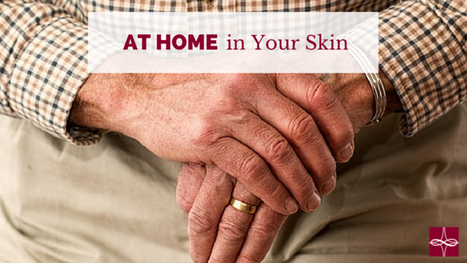

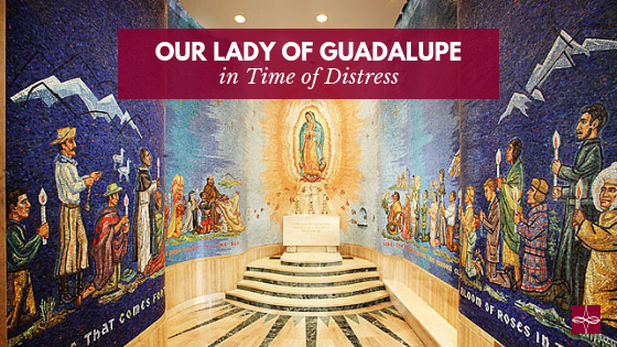
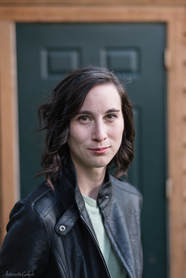

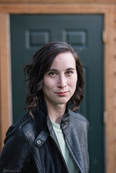
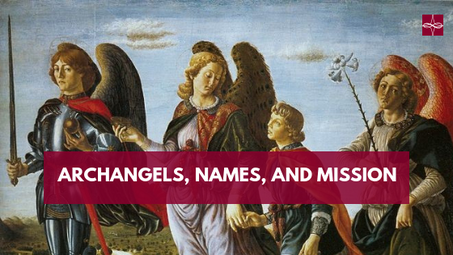

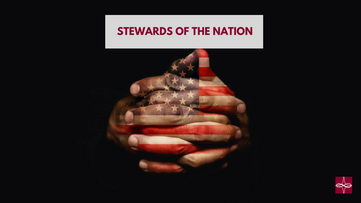
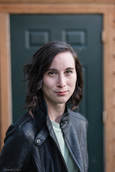
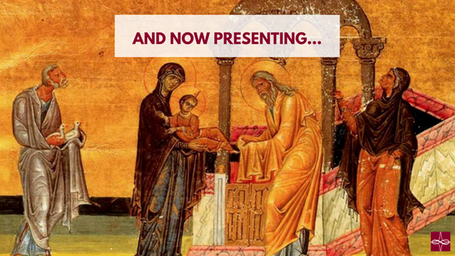
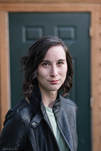
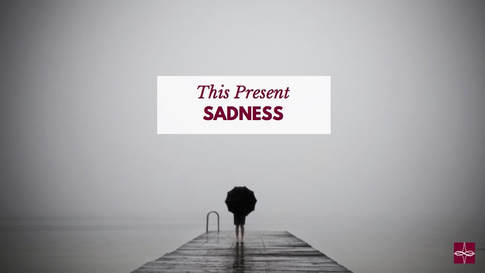

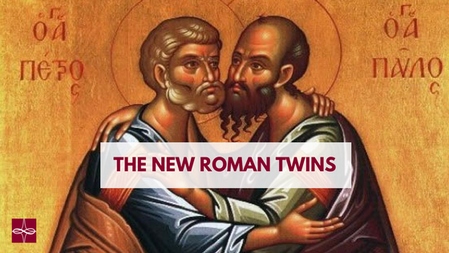

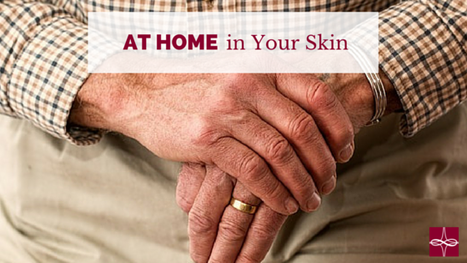

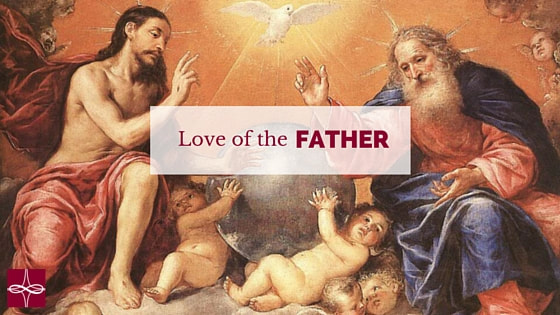

 RSS Feed
RSS Feed